
views
What is Hex in D&D 5e?
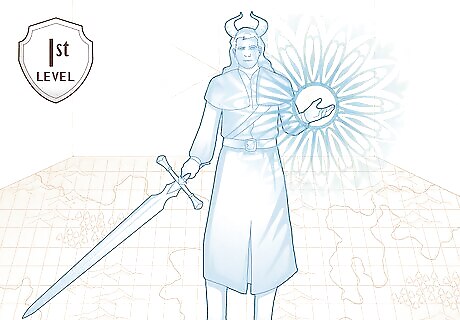
Hex is a 1st-level enchantment spell for warlocks. While some spells are available to more than one class, Hex is exclusively available on the warlock’s spell list—and it’s often considered a staple warlock spell. It functions as a debuff; warlocks who cast Hex can curse enemies, deal extra damage to them, and give them disadvantage on certain ability checks. Casting time: 1 bonus action Range: 90 feet Components: Verbal, somatic, and material (the petrified eye of a newt) Duration: Concentration (for up to 1 hour) This spell is found in the D&D 5e Player’s Handbook.
How does Hex work?
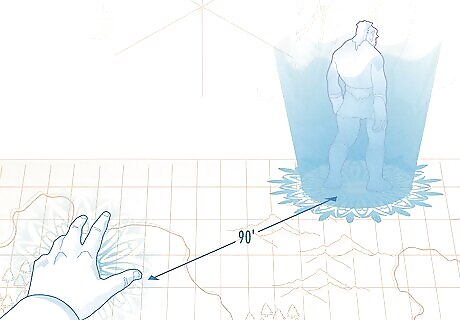
Choose a creature within range to curse with the Hex spell. Ensure your character can see the target and that they’re no more than 90 feet away. Hex automatically takes effect, allowing you to deal an extra 1d6 necrotic damage to your target when you hit them with any attack. You can also choose an ability, and for the duration of the Hex, your target has disadvantage on skill checks made with that ability. If the target you initially choose dies or drops to 0 hit points before Hex ends, you can use a bonus action to apply the spell to a new target. You can choose one of 6 ability scores to affect with the spell: Strength, Dexterity, Constitution, Wisdom, Intelligence, and Charisma. Disadvantage means rolling 2d20 (instead of 1) and taking the lower result. When you have disadvantage, you’re more likely to fail a check.
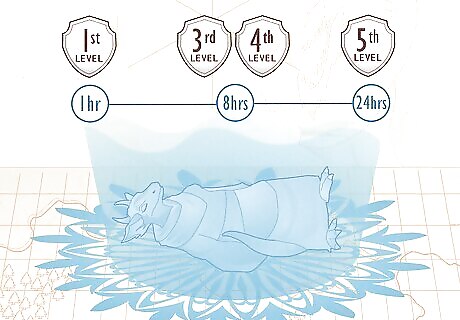
Upcast Hex at higher levels to increase its potency. Because warlock spell slot levels increase as the warlock’s overall level increases, you can upcast Hex at higher levels when your warlock PC (player character) gains higher-level spell slots. Casting Hex at the 3rd or 4th level increases its duration to 8 hours, while a 5th-level or higher Hex increases its duration to 24 hours. Regardless of the level you cast Hex at, remember that your PC must maintain concentration for the spell’s duration. The Remove Curse spell can end Hex early (before it reaches its duration) when cast on the spell’s target.
How to Use Hex

Pair Hex with multiple attacks per turn to deal maximum damage. Since Hex deals 1d6 necrotic damage per attack, the best way to whittle down an enemy’s health is to cast Hex and then take as many attacks as possible. If your PC has an ability that gives them multiple attacks in a single turn, be sure to use it while Hex is active! For example, Eldritch Blast is a cantrip that creates energy beams—and starting at the 5th level, it creates multiple beams per casting, meaning you could add Hex damage to each beam. You could also equip your warlock with two weapons (one in each hand) and have them attack with both on a turn, dealing additional Hex damage on each attack.

Target the most powerful enemy present to reduce its power. If you’re in a fight and there’s an obvious BBEG (big bad evil guy/gal, which is a TTRPG term referring to a main villain), consider targeting the BBEG with Hex. Since BBEGs tend to be much more powerful than their minions, HEX can help to drain their health faster in combat and eliminate the biggest threat first. On the other hand, if there’s a BBEG with a gaggle of minions, you could instead cast Hex on a random weaker target to take them out quickly—then move it to another weaker target, and so on. This method can help isolate the BBEG, taking away their minions quickly and ensuring you and your allies aren’t taking a ton of attacks from both the BBEG and their minions each turn.

Cast Hex on a magic user to hinder their spellcasting checks. Since spells like Dispel Magic, Counterspell, and Telekinesis rely on ability checks made with the caster’s spellcasting ability score, targeting that ability score with Hex can weaken enemy spells. If you know what class (cleric, wizard, sorcerer, and so on) your enemy is, try using Hex against their spellcasting checks. For example, clerics and druids rely on Wisdom, so you could target an enemy cleric’s Wisdom with Hex. Wizards and artificers rely on intelligence, so you could target their Intelligence with Hex. Sorcerers, bards, warlocks, and paladins use Charisma, so you could target their Charisma with Hex.
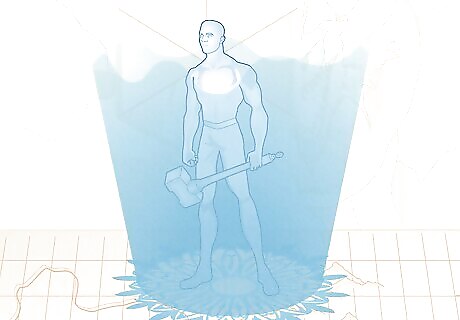
Impose disadvantage on physical skills for martial enemies. If you’re dealing with an enemy that could potentially make Strength checks (to grapple or to escape someone else’s grapple, for example), Hexing their Strength score could weaken those checks. Similarly, if an enemy seems to rely on Dexterity and might use acrobatics checks to maneuver in combat, you could Hex their Dexterity ability score. Generally, there aren’t many reasons to Hex an enemy’s Constitution since most Constitution-related rolls are saving throws.

Cast Hex outside of combat to affect social situations. Although Hex has a damage component, that doesn’t mean its only use is in the middle of combat. The power to impose disadvantage on ability checks can be super useful when interacting with NPCs (non-player characters). If you know you’ll be making contested ability checks against an NPC, try Hexing them first. For example, say you want to use Stealth to sneak past a guard. If you covertly Hex the guard and target their Wisdom, they’d be at a disadvantage on Wisdom (Perception) checks to spot your PC while sneaking. Similarly, say you’re using a Deception check to lie to an NPC. Deception is contested by Wisdom (Insight)—so if the NPC is Hexed, you could impose disadvantage on their Insight checks.
Is Hex good?
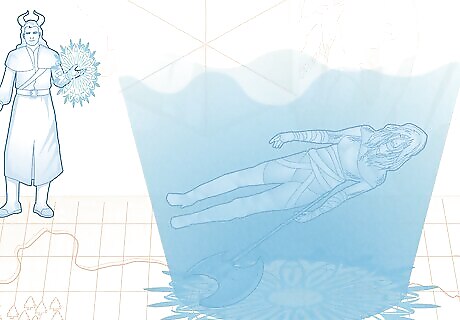
Hex is a strong warlock spell choice, especially at low levels. At higher levels, you’re more likely to find other spells that are just as appealing (if not more so) than Hex—but at level 1, there aren’t many other warlock spells that can compete with Hex. So, at least while playing a low-level warlock, consider adding Hex to your PC’s spell list. Hex is also very versatile because it can both deal damage and debuff enemy ability checks, making it a valuable utility spell in and out of combat.



















Comments
0 comment